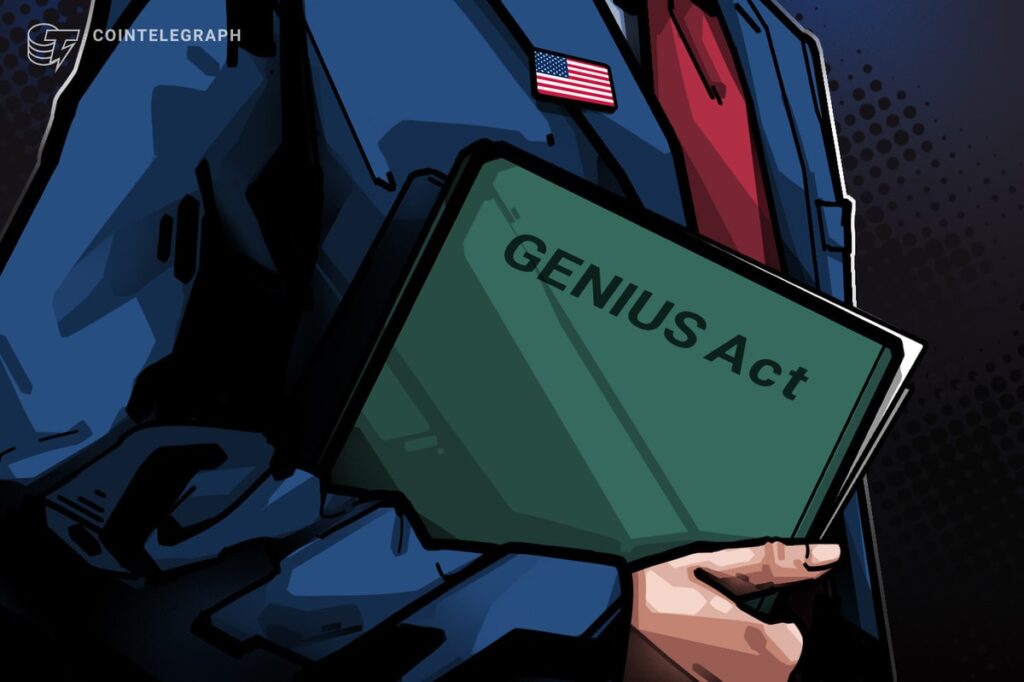Keith Kelley, a Republican state senator who represents the 12th Alabama district, the alarm for the potential impact of the Federal Law of Stablecoin, the genius law, two months after the president of the United States, Donald Trump, signed the firm.
In an opinion article on Wednesday for the news of 1819, Kelley said there was an escape in Genius law that, if exploited, could “devastate” the economies of rural areas like many in Alabama.
According to the senator, the bill would allow the “cryptocurrency platforms to distribute financial rewards”, encouraging people to withdraw funds or close accounts in small community banks in the state.
“Unlike large banks, community banks depend on local deposits to finance their loans,” Kelley said. “If these deposits decrease, their ability to offer loans to individuals, families and small businesses will be significantly restricted.”
Added:
“For our rural agricultural communities in particular, where the margins are thin and the seasonal cash flow is critical, the loss of a confidence loans could be devastating.”
https://www.youtube.com/watch?v=RY9MI57PBJS
Although it was signed on July 18, Genius law will not immediately enter into force. The law requires that the treasure of the United States and the Federal Reserve terminate the regulations related to the bill, a process that the first began in August when requesting public comments focused on detecting illegal activities.
Related: The bank lobby fights to change the genius law: Is it too late?
The proponents of the Genius Law have argued that the bill “will promote innovation” to the US. Establishing regulatory clarity for Stablecoin issuers. However, others have warned about problems with the law, in addition to concerns about Stablecoin issuers who pay yields indirectly.
“The foreign broadcaster lagoon was not fixed enough,” he told Cointelegraph in August of the Kennedy Government School at Harvard University and former president of the Future Trade Commission of the Basic Products of the United States (CFTC) in August.
Critics affirm that the law could put Stablecoin issuers based in the United States in a competitive disadvantage for foreigners creating restrictive rules. Genius allows foreign stablecoin emitters to operate in the US.
Banking groups also smile in the genius ‘Laguna’
The escape referred to by Alabama’s state senator seemed to come from a provision that indicates that:
“There is no payment allowed Stablecoin issuer or the Stablecoin payment issuer abroad will pay the holder of any payment of any payment form of interest or performance (either in cash, tokens or other consideration) in relation to the possession, use or withholding of said payment status.”
However, the text of the bill did not explicitly affirm that the stablecoin emitters could not use cryptocurrency exchanges or affiliates to offer yields, potentially dodging the law.
“Allowing these cryptocurrency companies to work as banks, offering rewards or performance products, without demanding them to play with the same rules is not innovation,” Kelley said. “It is the regulatory arbitration, and is putting the lives of American families and our local economies at risk.”
In August, the Bank Policy Institute echoed similar concerns about the genius, claiming that the law could lead to $ 6.6 billion in deposit outputs of traditional banks, interrupting the flow of credit to the communities that depend on it.
The moment of Kelley’s concerns was not clear, since months had passed since the Republicans in the House of Representatives and the United States Senate began to write the law and approximately two months since Genius was signed.
Cointelegraph contacted Alabama senator to comment, but had not received an answer at the time of publication.
Magazine: The Genius law reopened the door for a stable goal, but will it work?

